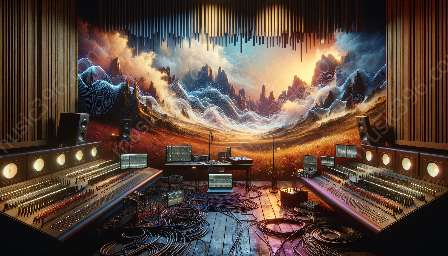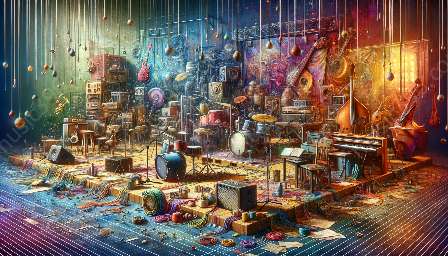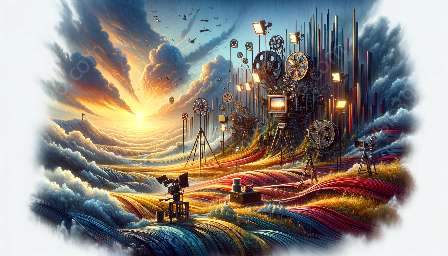In the world of experimental music, the quest for artistic freedom often encounters ethical responsibilities that must be carefully navigated. This delicate balance becomes even more complex when considering the intellectual properties and rights in experimental music. To explore this topic, we dive into the ethical challenges and responsible conduct in pushing the limits of artistic freedom in experimental music while considering intellectual properties and rights.
Freedom of Expression in Experimental Music
Experimental music is a genre that thrives on innovation, pushing boundaries, and challenging traditional musical norms. It offers musicians the opportunity to explore uncharted territories, experiment with unconventional sounds, and express themselves in ways that may not conform to mainstream expectations. This freedom of expression is a fundamental aspect of experimental music, serving as a platform for artists to break away from conventional structures and unleash their creativity.
Ethical Responsibilities in Artistic Expression
However, with the freedom of expression comes ethical responsibilities. Experimental musicians must consider the potential impact of their work on audiences, communities, and cultural landscapes. Ethical responsibilities in artistic expression involve acknowledging the potential for provocation, controversial themes, or avant-garde approaches that may challenge societal norms or values. Artists must take care to approach these aspects with a conscientious understanding of their impact, and an awareness of the potential consequences of their creative choices.
Exploring Ethical Challenges in Experimental Music
When delving into the ethical challenges within experimental music, one must confront questions regarding the boundaries of artistic freedom. How far can artists push the envelope in their quest for innovation and boundary-pushing experimentation while maintaining ethical integrity? This exploration requires a thoughtful consideration of the potential impact on audiences and the broader cultural landscape.
Intellectual Properties and Rights in Experimental Music
Considering intellectual properties and rights within experimental music introduces another layer of complexity. As artists engage in boundary-pushing experimentation, they must also navigate the legal and ethical considerations surrounding the use of existing intellectual properties and rights. This includes the sampling of pre-existing music, the creation of derivative works, and the ethical implications of appropriating cultural or historical elements in the pursuit of artistic expression.
Responsible Conduct in the Context of Experimental Music
Responsible conduct in experimental music necessitates a thorough understanding of intellectual property laws and ethical considerations. Artists must be mindful of the legal and moral implications of their creative processes, placing emphasis on the ethical sourcing and usage of materials, as well as respect for the intellectual property rights of others. This responsibility extends beyond the music itself to encompass promotional materials, visual elements, and performance practices.
Championing Ethical and Legal Integrity
Despite the creative liberties inherent in experimental music, maintaining ethical and legal integrity is paramount. By championing ethical and legal conduct, artists can contribute to a culture of respect for intellectual properties and rights while fostering an environment of responsible artistic expression. This approach not only upholds the integrity of the artistic community but also demonstrates a commitment to ethical responsibility and societal conscientiousness.
Experimental and Industrial Music: Navigating Ethical Challenges
Within the diverse landscape of experimental and industrial music, artists encounter unique ethical challenges. The industrial music genre, known for its often confrontational and provocative sounds, requires a careful balance of artistic freedom and ethical considerations. This genre, characterized by its atypical approach to sound and subject matter, poses questions that extend beyond artistic expression and delve into complex ethical and legal realms.
Conclusion
In conclusion, the intersection of artistic freedom, ethical responsibilities, intellectual properties, and rights in experimental music presents a multifaceted landscape that demands thoughtful consideration. Balancing the pursuit of creative freedom with ethical and legal integrity is essential for the continued evolution and responsible practice within the experimental music community. By navigating these complexities with conscientious awareness and respect for ethical considerations, artists can uphold the integrity of the genre while contributing to a culture of ethical responsibility and artistic innovation.































